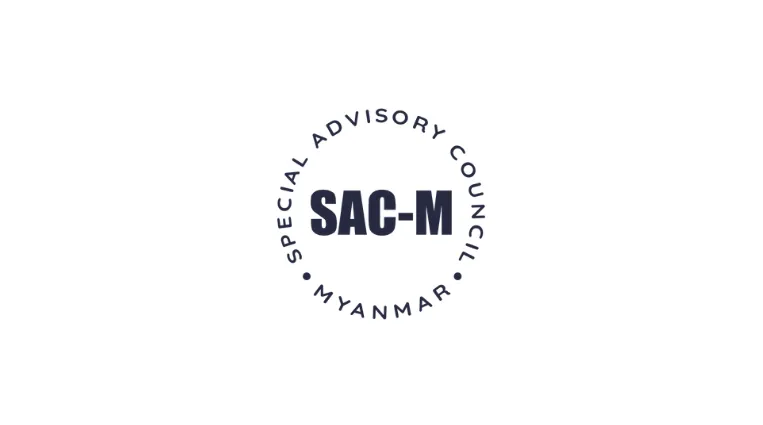US Gov’t and UN Member States Must Provide Direct Support to Myanmar’s Resistance Actors Now
13 June 2024

The United States (US) Government and United Nations (UN) member States must respond to rapidly evolving dynamics on the ground in Myanmar by providing material and political support to the country’s many resistance actors and taking action to protect civilians from escalating junta atrocities, says the Special Advisory Council for Myanmar (SAC-M).
SAC-M founding members Yanghee Lee and Chris Sidoti and members of the SAC-M team this month travelled to Washington, D.C. and New York in the United States to speak to members of the United States Government, UN member States and representatives of the National Unity Government of Myanmar (NUG).
The visit coincided with the third anniversary of UN General Assembly Resolution 75/287 on the situation in Myanmar, adopted on 18 June 2021. Since then, the Myanmar military junta’s sustained attack on the civilian population has created an unprecedented humanitarian and human rights disaster in Myanmar. The crisis is severely undermining the stability and security of the entire region. Despite this, the General Assembly has not addressed the situation since Resolution 75/287.
Conflict dynamics in the country have evolved significantly since nationwide resistance first emerged in response to the Myanmar military’s coup attempt on 1 February 2021. International actors have a responsibility to respond to the new dynamics on the ground and move beyond their current wait-and-see approach to the crisis by taking decisive action to alleviate the suffering of civilians and protect human rights in Myanmar now.
SAC-M calls on the UN General Assembly to adopt a new resolution on Myanmar that recognises the importance of the National Unity Government, ethnic resistance organisations (EROs) and broader civil society in realising the federal democratic will and aspirations of the Myanmar people. The General Assembly must address Myanmar’s humanitarian emergency by calling for the massively scaled-up provision of humanitarian assistance directly to the Myanmar people, including through cross-border channels, by coordinating directly with the NUG, EROs and broader civil society. Furthermore, the General Assembly must call on all States to immediately cease all transfers of arms, munitions, military equipment and dual use items, as well as jet fuel, to the Myanmar military junta.
It has been one and a half years since the UN Security Council attempted meaningful action on Myanmar. The junta has refused to comply with UN Security Council Resolution 2669 on Myanmar since it was adopted in December 2022. The United Kingdom, as the permanent Security Council member that informally leads on Myanmar issues, has been failing in its responsibility to push the Council to address the growing emergency in Myanmar. The Council’s dysfunction on Myanmar reached a new low in April when Myanmar’s permanent representative to the UN, Ambassador Kyaw Moe Tun, was barred from speaking at an open briefing on Myanmar. SAC-M considers this denial of speaking rights to a permanent representative of a concerned country as setting an extremely dangerous precedent.
The Security Council must adopt a new resolution on Myanmar under Chapter 7 of the UN Charter that refers the whole situation in Myanmar to the International Criminal Court. If the Security Council can’t, or won’t, act, the General Assembly must establish a special international criminal tribunal for Myanmar to begin prosecutions of Myanmar military leaders for the most serious international crimes committed in the country.
Finally, SAC-M urges the US Government to return the more than US$1 billion of frozen Myanmar national reserves held by the US Federal Reserve since February 2021, or at least the substantial interest accrued since then, to the legitimate representatives of the Myanmar people: the NUG, EROs, and broader civil society. These funds would provide a lifeline for resistance authorities to address the massive humanitarian needs of the population and strengthen governance capacity and service delivery in areas of the country under their expanding control.
Announcements
28 February 2025
Asian NGO Network on National Human Rights Institutions , CSO Working Group on Independent National Human Rights Institution (Burma/Myanmar)
Open letter: Removal of the membership of the dis-accredited Myanmar National Human Rights Commission from the Southeast Asia National Human Rights Institution Forum

Progressive Voice is a participatory rights-based policy research and advocacy organization rooted in civil society, that maintains strong networks and relationships with grassroots organizations and community-based organizations throughout Myanmar. It acts as a bridge to the international community and international policymakers by amplifying voices from the ground, and advocating for a rights-based policy narrative.